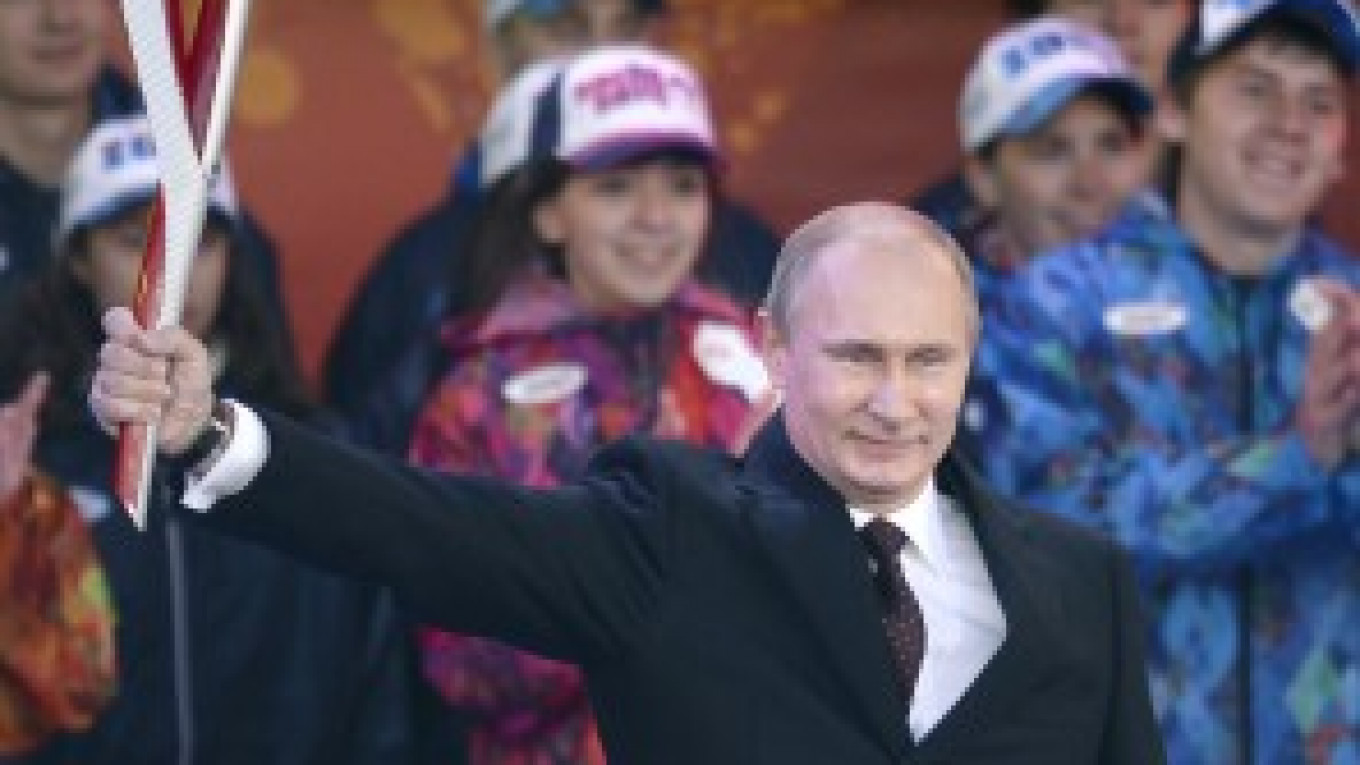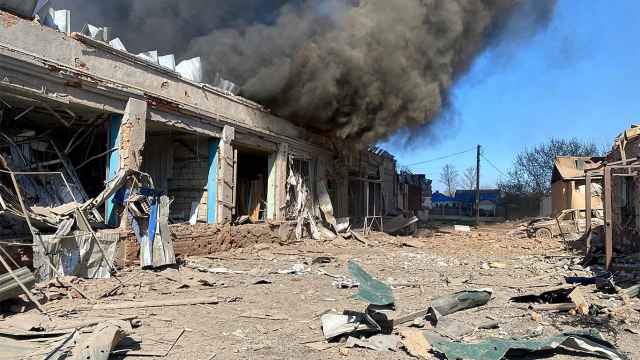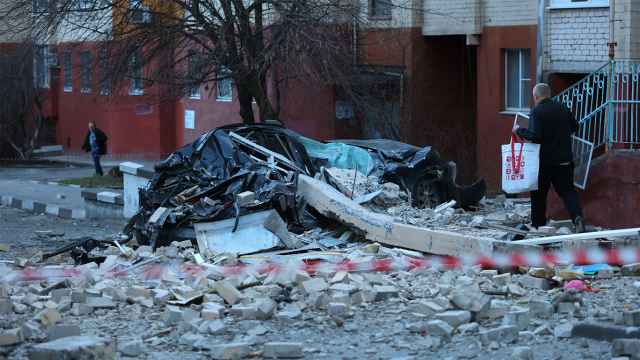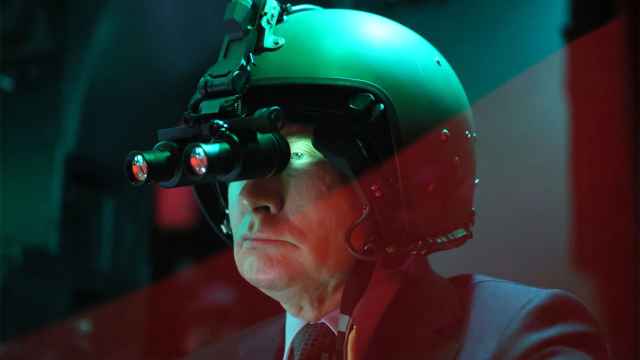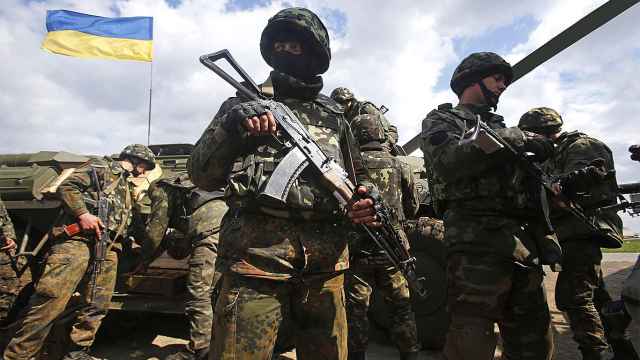In 2007, Russia was starting to look like a world power again. Its economy was growing at a record 8.5 percent annual rate. Political life had stabilized. Support for President Vladimir Putin was stratospheric. The decade-long Chechen rebellion seemed to have been suppressed. And, to top it off, the International Olympic Committee awarded the 2014 Winter Games to Sochi, the country's Black Sea resort.
In many respects, it was a strange choice of venue: Sunny Sochi has beautiful mountains but little or no snow. It is also 1,350 kilometers south of Moscow, with only a few direct flights from Europe, while the trip from most U.S. cities involves two or three stops.
Putin's Russia is weak, tawdry and corrupt — and does not deserve to be the Olympic host.
But Russians in 2007 were becoming more optimistic about their future. Addressing the Olympic Committee, Putin argued — in English to display his newly discovered worldliness — that awarding Russia the Games would not only allow the country to showcase its post-Soviet achievements, but also help the young democracy through its political and economic transition. Nothing seemed too difficult for Putin — even mouthing democratic platitudes for an Olympic committee who really did not care very much about them, particularly given that the Summer Olympics of 2008 would be held in Beijing.
But once construction got underway, the realities of modern Russia could not be hidden so easily. The colossal $50 billion cost, which is more than all other Winter Olympics combined, was expected to turn the town into a sporting paradise, packed with arenas and a new airport. Instead, corruption and construction accidents have plagued preparations, with some hotels still unfinished by Friday's opening ceremony.
Delay and waste are common in Olympic preparations. Greece had plenty of them in 2004, and it looks like Brazil will have its share for the 2016 Summer Games. But Russia is proving to be an unsuitable host for other reasons.
For starters, there should be serious concerns about Putin's own political legitimacy. His controversial re-election to a third presidential term has not only been condemned internationally, but also triggered anti-government protests across Russia.
Putin responded to those he considered political enemies by arresting and jailing protesters, including the all-female protest group Pussy Riot, following show trials. In December, as the Olympics approached, Putin issued "show pardons" of several prominent political prisoners in an attempt to present himself in a better light globally. Such episodes have contributed to a general air of intolerance across Russia, fueled in no small part by Kremlin-incited chauvinism. Putin signed a discriminatory "gay propaganda" law in June, which has caused outrage abroad. Local activists have even advised gay athletes not to display signs of their sexual orientation while in Russia.
Similarly, though the Olympics should be a time of national pride, foreign — and in particular American — athletes have been told to avoid showing their team colors when outside the grounds. In fact, they have been warned not to wander beyond Sochi's "ring of steel" security perimeter and the watchful gaze of police officers, even though visitors to an Olympics typically like to explore the local sights.
None of this engenders a sense of Olympic solidarity and international friendship. But it gets worse. The authorities must also contend with threats from Islamist insurgents from Chechnya now operating in other North Caucasus republics, a mere 300 kilometers from Sochi. The "black widows" — wives of Islamist fighters killed in the Kremlin's "pacification" campaign — are believed to be preparing retaliatory suicide missions at airports, train stations and on buses.
Older sports fans might recall similar concerns when Moscow hosted the 1980 Summer Games, which the U.S. and its allies boycotted in response to the Soviet invasion of Afghanistan. Back then, however, Russia's claim to host a global sporting event reflected its very different status. The Soviet Union was a superpower — stagnant but stable. Its totalitarian secrecy, gargantuan military-industrial complex and ever-present KGB handlers gave the Communist hegemon a perverse mystique that made even a simple visit to Red Square a trip to remember. However, much the country was hated or feared, one could not deny that is was a major player on the global stage.
Not so today. Putin's Russia is weak, tawdry and corrupt — and does not deserve to be the Olympic host. The atmosphere surrounding the Sochi Games reflects many of our worst and most embarrassing traits, instead of showcasing our global resurgence as Putin has envisioned it. Yellow tap water, twin toilets in one stall, cruel treatment of stray dogs and a restriction on Chobani yogurt makes Russia the butt of global comedy.
In the immortal words of former Prime Minister Victor Chernomyrdin, describing the country's economic transition of the 1990s: "We hoped for the best, but things turned out as usual."
Even assuming that the Sochi Games pass off successfully and the athletes and visitors enjoy their stay despite the security restrictions and official bigotry, will Russia's brief display of national pride really be worth the financial and political cost? Or will Russians wake up six months from now and say, "Yes, our country has a fancy ski resort — at the beach?"
Nina Khrushcheva teaches international affairs at New School University in New York City and is the author of "The Lost Khrushchev: A Journey into the Gulag of the Russian Mind," forthcoming next month. © Project Syndicate


